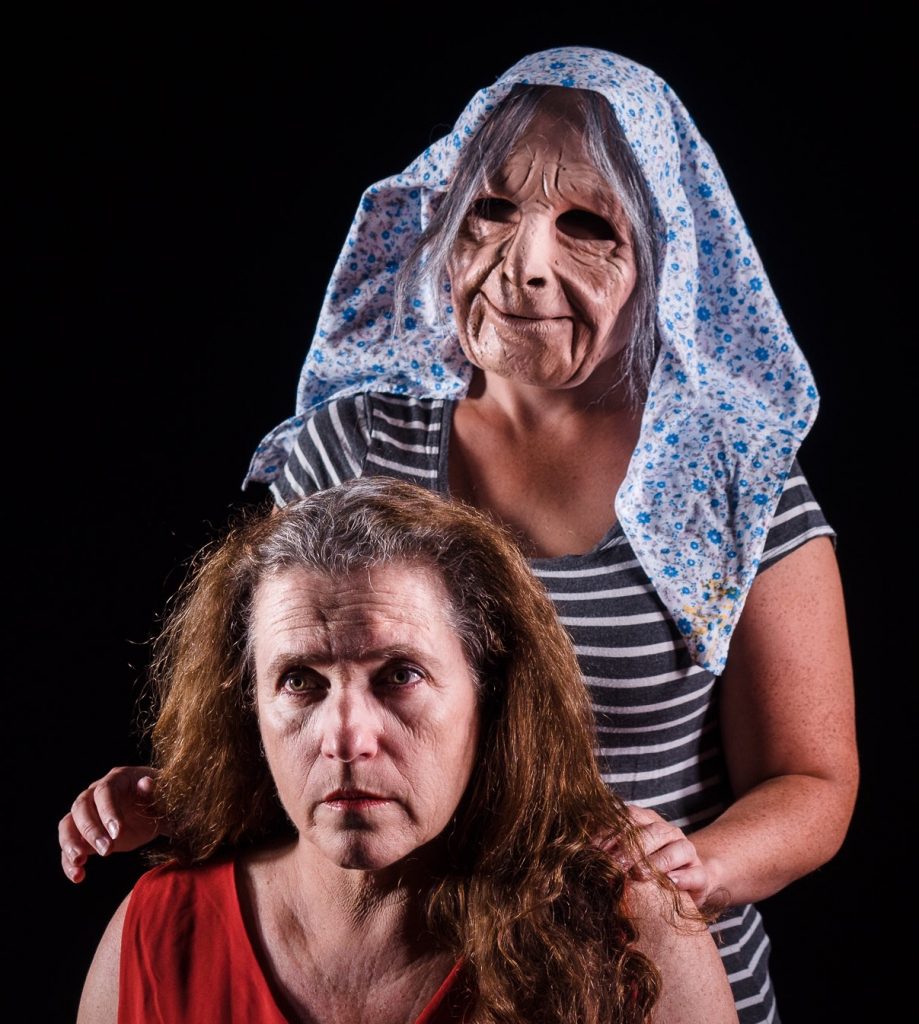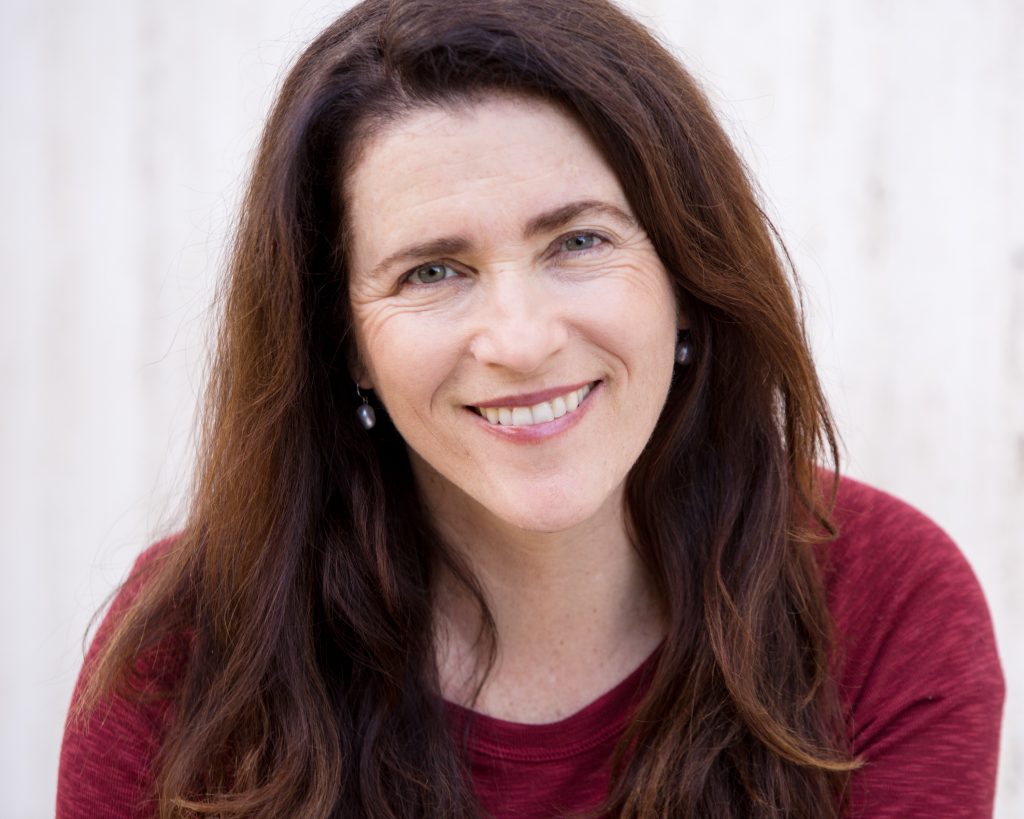‘Breadcrumbs’: D.C. Isn’t the Only Press Freedom Backdrop
The Trump administration, such as it is, has fortified its battle lines over media-generated “fake news,” which 45 recently demonized as “the enemy of the people.” The White House took matters into its own hands on Feb. 24, barring CNN, The New York Times and other outlets of choice from covering a Q&A session held in place of press secretary Sean Spicer’s daily briefing.
By 45’s own acknowledgment, there’s a war on.
While press relations with the feds have never been terribly cozy, they’ve always worn the public mantle, the hallmark of a healthy democracy. Feb. 24, however, marked a local press event lost in the flaps over banned news organizations, alternative facts and science fiction’s Bowling Green massacre. That was the scheduled opening date of Breadcrumbs, fruitlessmoon theatreworks‘ nod to the ravages of Alzheimer’s disease and the affected parties’ relationships — a play that won’t see the considerable light of the San Diego day amid the unexplained revocation of rights by publisher Samuel French, Inc.
Five weeks before curtain.

Alida (Aimee Greenberg, below) is among the 5 million Americans suffering the ravages of Alzheimer’s disease. PHOTO BY JIM CARMODY
Much more than a topical performance, it seems, was at stake.
“There’s a freedom of the press issue here,” Carlsbad resident Greenberg said. “This is unjust, and people need to know this can happen. How can we have faith in going the distance in performing this work if somebody is not permitting us to enjoy those rights?”
Jennifer Haley’s 2015 play revolves around Alida, a reclusive fiction writer diagnosed with early-stage dementia and who must depend upon troubled young caretaker Beth to finish an autobiography. The women’s back-and-forth plunges them into a dubious past, revealing a tragedy that shatters their notions of language, loneliness and the essential self.
Chula Vista’s George G. Glenner Alzheimer’s Family Centers, Inc. was planning to use the production as a fundraiser. The group was also providing the license for nurses to obtain credit hours for attending the production. Multiple caregiver and medical experts in the field were scheduled to speak at post-play discussions at the La Jolla Commons theater, a play venue at Congregational Church of La Jolla. The play was scheduled to close March 12.
‘It’s so ironic that a play relating to Alzheimer’s is not allowed to benefit and serve the cause and cure of this awful disease. Isn’t that why we create art?’
— Aimee Greenberg
Alzheimer’s disease is today a major element in the lives of Amiercans and the medical community that serves them. It’s the most common cause of dementia, and as of 2016, more than 5 million Americans were living with it. Some 700,000 Alzheimer’s-related deaths were recorded last year. The disease involves toxic plaques that kill communication between brain neurons, compromising bodily functions and abstract thinking and eventually leading to death. The disease claimed former President Ronald Reagan’s life in 2004.
Greenberg’s plans dissolved with the new year, when she “got one of those glaring e-mails at 7 in the morning with red highlighting: Pull all your marketing now, your request for (date and venue) changes has been denied, you have no license anymore.” A similar e-mail was to follow.
“I think they were using (the date and venue issues) as an excuse to pull the rights,” Greenberg said. “To pull rights over licensing? It doesn’t work that way. When you pay for your license, the license extends over the rehearsals and the production dates.”
Greenberg’s licensing fee of $600 has been returned.
Greenberg said she sought an explanation on several fronts, including an overture to an unresponsive Haley. She added that French indeed cited vague references to potential film and television options — beyond that, she said, representatives remained secretive regarding the restrictions on the title within the Los Angeles/San Diego region. She also said that the provisions of French’s contracts were revocable at any time — adding, “Then why have them?”
French officials didn’t respond to San Diego Story‘s inquiries by press time.
One local artistic director underwent the same consequence in 2005 with Gum, by former San Diegan Karen Hartman. It was determined he tried to alter the script far in excess of Hartman’s intent, at which time the rights were rescinded.

Aimee Greenberg wonders why Samuel French issues contracts if the company can bend/break the rules at will.
Meanwhile, who said what when and to whom pales against the greater good.
“What’s larger than me,” Greenberg said, “is that we do art for the sake of outreach. Speakers and doctors and caretakers were already a part of this. To do this to them is really bad form all the way around. It’s so ironic that a play relating to Alzheimer’s is not allowed to benefit and serve the cause and cure of this awful disease. Isn’t that why we create art?
“What ensued is just a comedy of errors. I just feel like I have a big corporation looking over my shoulder.”
45, of course, is the CEO of the biggest corporation in the world, although he’s certainly not interested in the local event. He’s got bigger fish to fry, what with his proposed elimination of National Endowment for the Arts funding (.006 percent of last year’s federal spending) and the privatization of the Corporation for Public Broadcasting.
But press freedom comes in many forms, and so does its abrogation. Greenberg has allegedly learned this lesson in no uncertain terms — terms whose scope and substance touch not only the theater but the ways of life it seeks to reflect.
